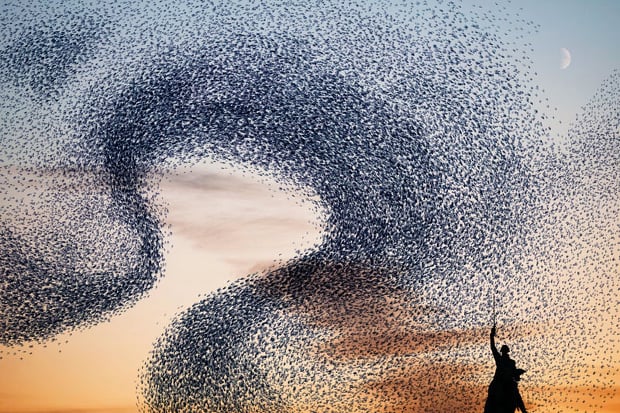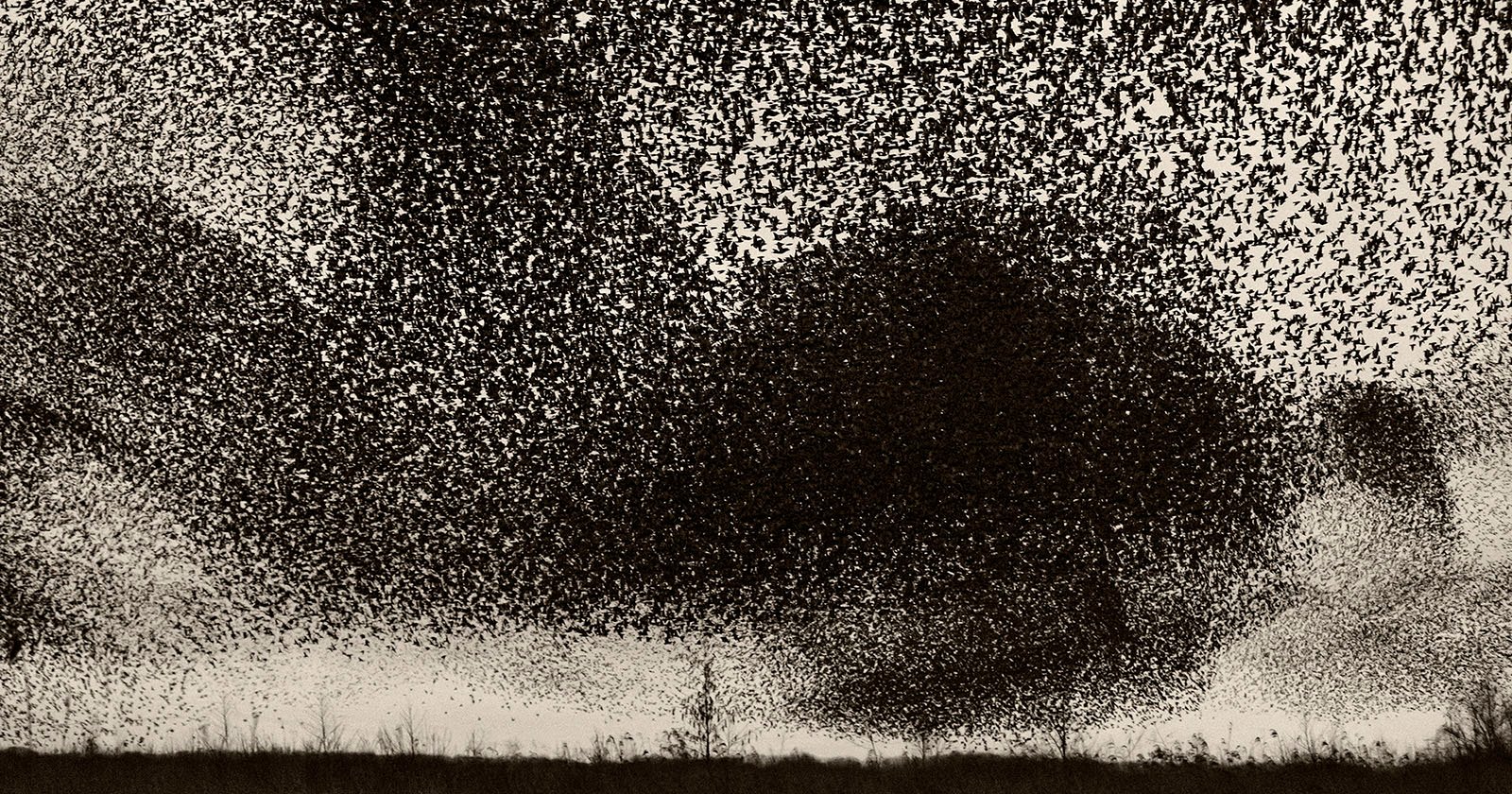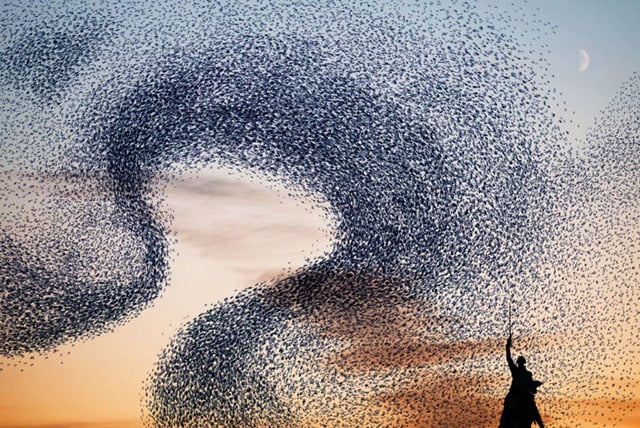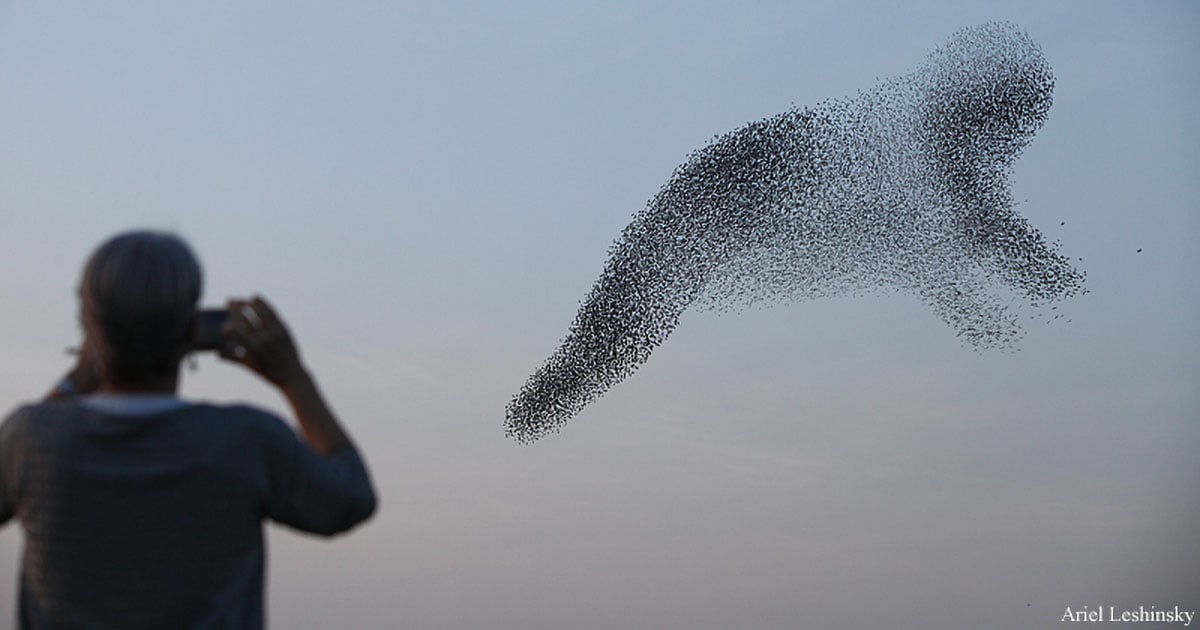A Photographer’s Hauntingly Beautiful Images of Starling Murmurations
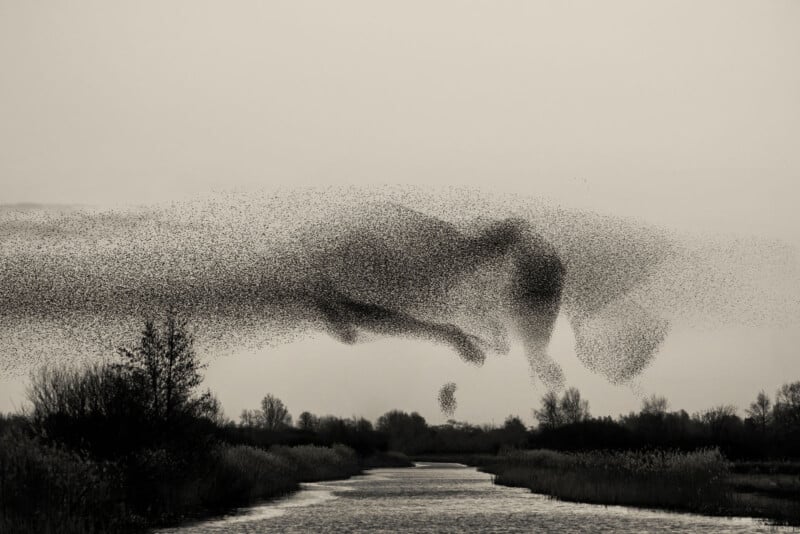
Internationally acclaimed Danish photographer Søren Solkær released his ninth photographic monograph, Starling, just after Christmas. The sequel to Solkær’s best-selling book, Black Sun, Starling shows starling murmurations in a hauntingly beautiful way.
With Starling, Solkær continues exploring a lifelong passion. Having grown up in southern Denmark, the incredible murmuration phenomenon has long been a regular sight for the photographer.
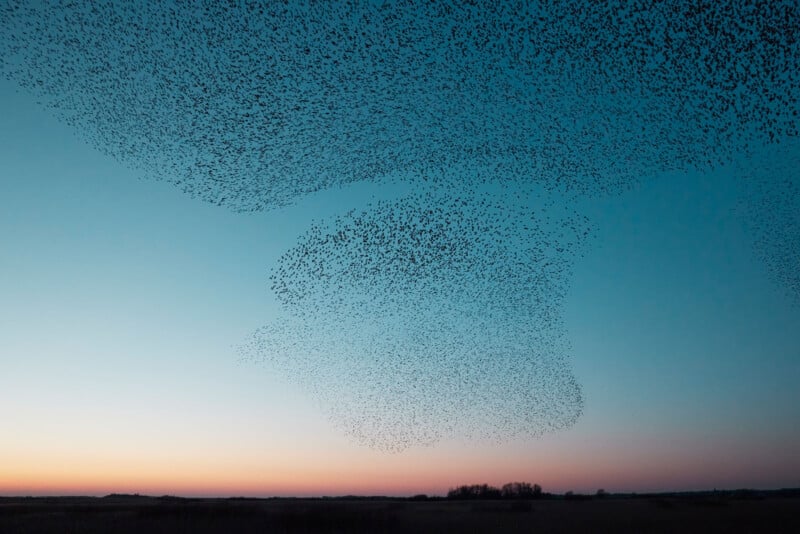
Although this photographic journey was once confined to Denmark, Solkær has since followed the beautiful birds outside Scandinavia, photographing murmurations throughout Europe, including in Ireland, England, the Netherlands, and Italy.

While often watched from a distance, as a sky-borne black mass of birds, with Starling, Solkær also takes a much closer look at starlings, even going so far as to capture microscopic images of starling feathers at the Panum Institute in Copenhagen using electron microscopes. A photographic project does not often span the micro and macroscopic like this. From an individual feather at the cellular level to wide-angle images of hundreds of thousands of birds in flight, Starling runs the gamut.
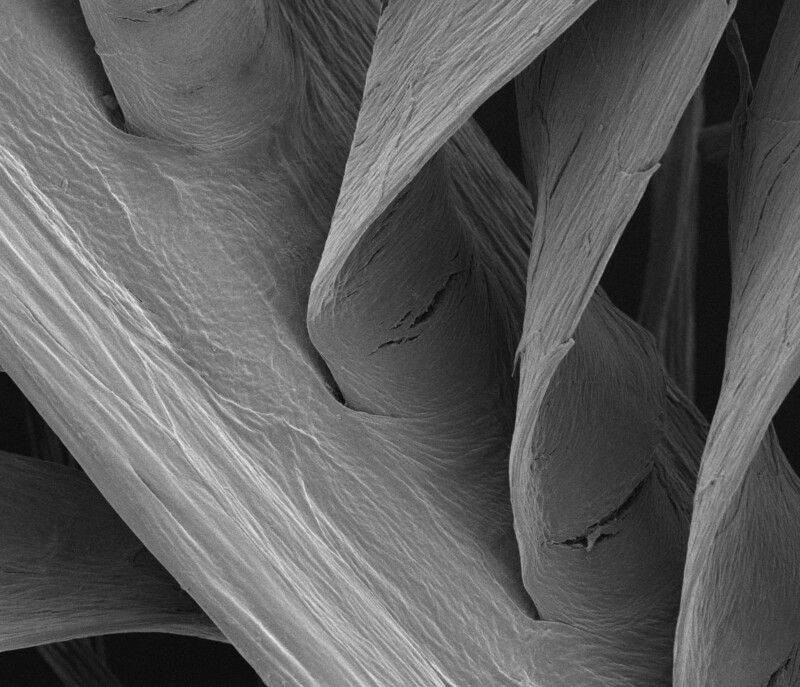
Development During a Long-Term Photo Project
“My artistic approach has developed a lot during the six years I have done work with starlings. I love working on one subject matter for many years. As more time and energy is invested, the project starts giving back and offering new and often times surprising perspectives,” Solkær tells PetaPixel.
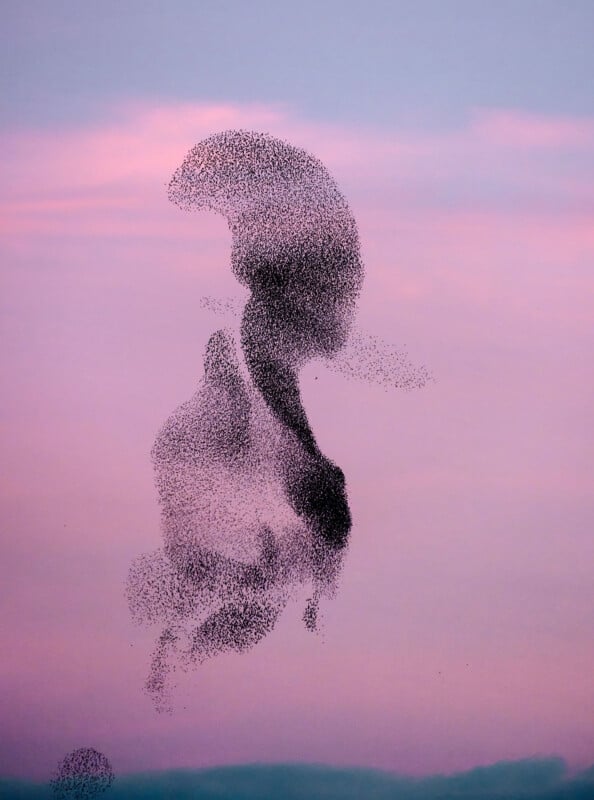
“After Black Sun, I felt that I was far from exhausting my interest in the starlings. My new book, Starling, examines the murmuration phenomenon from a more scientific and mythological angle.”
Starlings are significant in Roman mythology, so Solkær has included Roman religious architecture in some of his work.
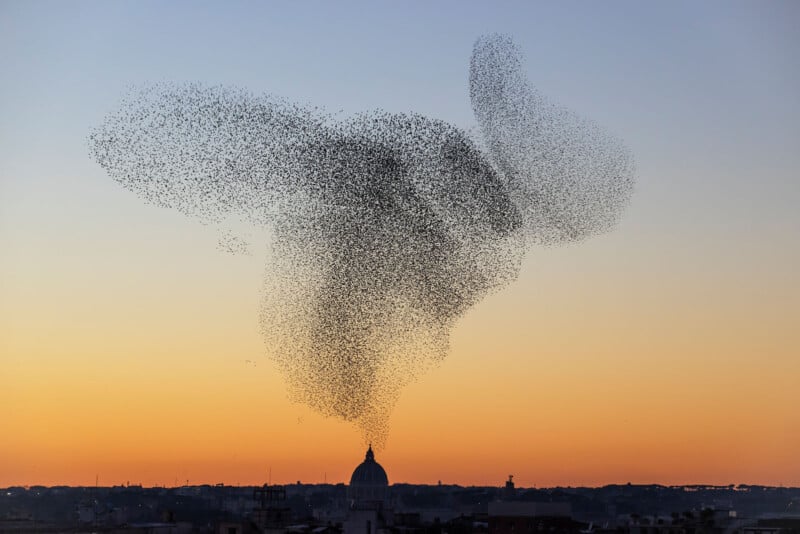
“After years of photographing mainly large formations, I got interested in taking a much closer look at the starlings. Through the microscope lens, I ventured into a domain where atoms assemble into orderly arrays, molecules form intricate structures,” the photographer continues.
“It’s a reminder that the same fundamental forces that govern the cosmos also shape the tiniest building blocks of life.”
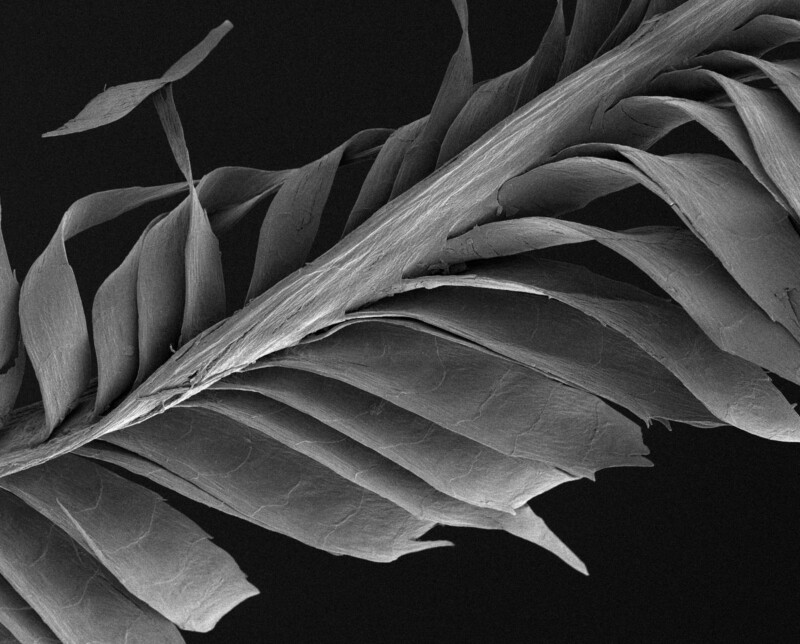
A Lifelong Interest, But Also a Professional Departure
After years of working on starling photographs, it would be easy to think that Solkær is a nature or wildlife photographer. And while Solkær’s photography is often inspired by or adjacent to nature, he is best known for his portraiture, especially of musicians. Solkær has captured iconic images of Björk, The White Stripes, Paul McCartney, Pharrell Williams, Adele, Patti Smith, and Amy Winehouse, among others. The photographer also has a cinematic angle to much of his work, citing filmmakers like David Lynch and Wong Kar-Wai as filmic inspirations.
Alongside being inspired by filmmakers, the photographer also does motion picture work.
“I do both film and stills, but mainly stills. I actually find that the films are the most obvious way to capture the murmurations.”
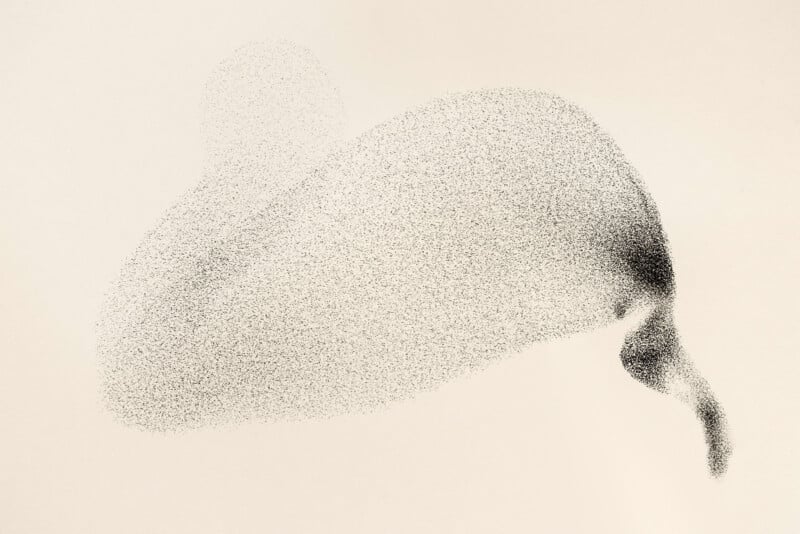
Video can often better show the constantly flowing movement of murmuring starlings. To try to reflect the dynamism in stills, Solkær sometimes uses long-exposure photography techniques.
“The stills are more demanding to create — and more rewarding when they happen,” he explains.
“During the murmurations, a lot of figures and shapes appear that change so quickly that the brain can hardly recognize them. That is the beauty and the challenge of stills. Capturing and freezing those shapes and constellations, that only happen once in the history of the world.”
“My work up until this project, I have always worked as a director, a creator. I have been in charge of creating concepts, ideas, and moods in my images. With Black Sun, I have opened up to connect with and receiving from nature.”
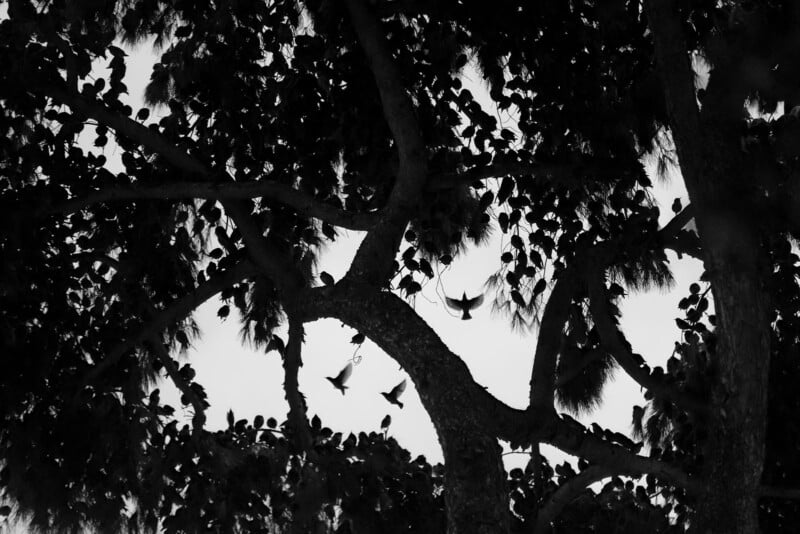
Solkær continues, “I have used my previous earned skills afterward in the editing process, finding a visual expression for the images, choosing paper to print the images on, etc. All in all, it has been a very humbling experience to let go of the full control and direction of a project.”
Printing in the Danish Countryside and the Overall Artistic Process
Concerning printing, Solkær prints at a spiritual ashram in the Danish countryside. Run my monks and nuns, Narayana Press (https://www.narayana.dk/) is considered the foremost printer in Europe for art and photography books.
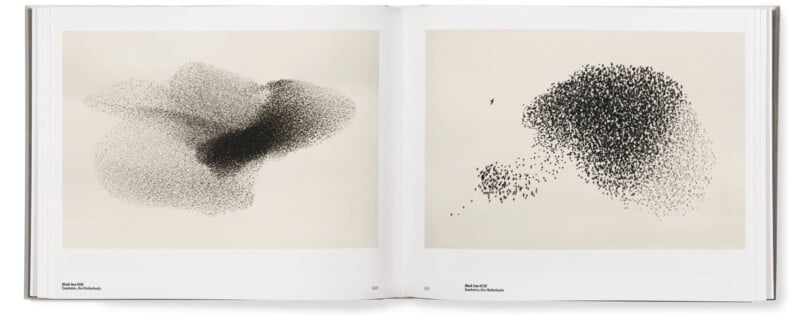
“Great attention is put into the details of the books I make with them,” says Solkær. “I seek out different paper stocks with my graphic designer, Rasmus Koch. We try to find papers that make going through the book a tactile experience.”
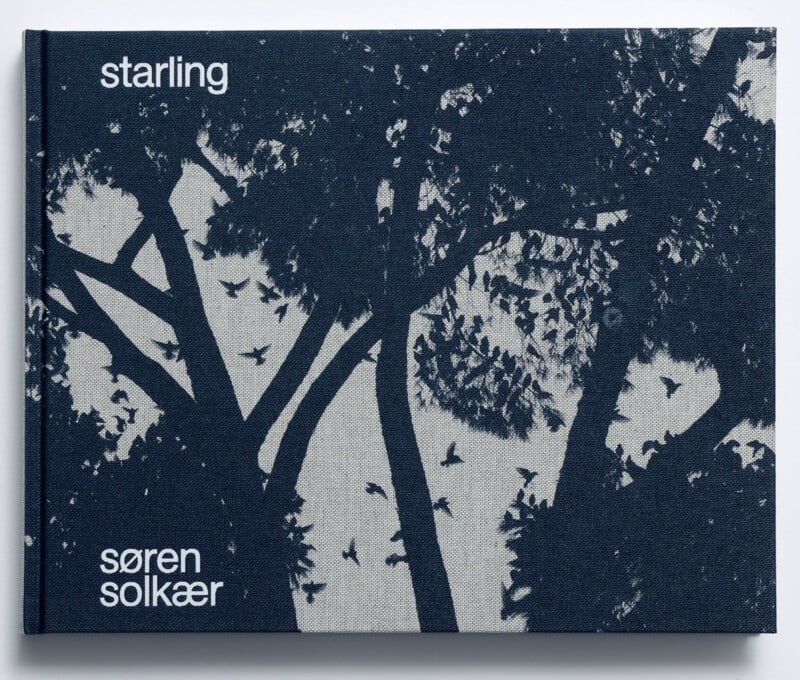
“Certain paper stock, weight, and surface are more suitable for certain image types. Switching back and forth between different qualities makes for a more interesting reading sensation.”
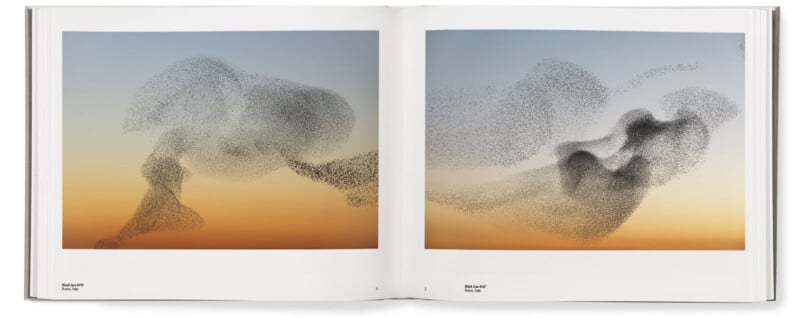
No detail goes unnoticed throughout the process, from planning, photographing, editing, and printing.
There is also the culling process, which, in the case of Starling, started with about 60,000 images. The photographer says he then got that down to about 800. From there, he made small prints of each photo and began dividing them into visual categories.
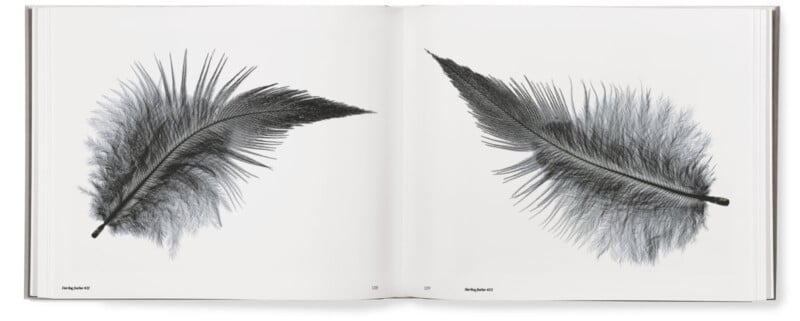
“From here, I start laying them out on my studio floor and try to establish image pairs, chapters, flow, rhythm, and visual narratives. This process usually takes months. Little by little, the puzzle starts to fall into place. It is a very intuitive process that requires meditative attention,” he says.
This “meditative attention” also carries over to actually capturing the photos, too. Solkær has never moved or cloned a single bird in any of his starling photos. He must patiently wait for the right moment and, if it occurs, be ready to capture it.
There’s also something fascinating about how people can turn random or chaotic shapes into patterns, and these patterns into stories, a phenomenon called “pareidolia.”
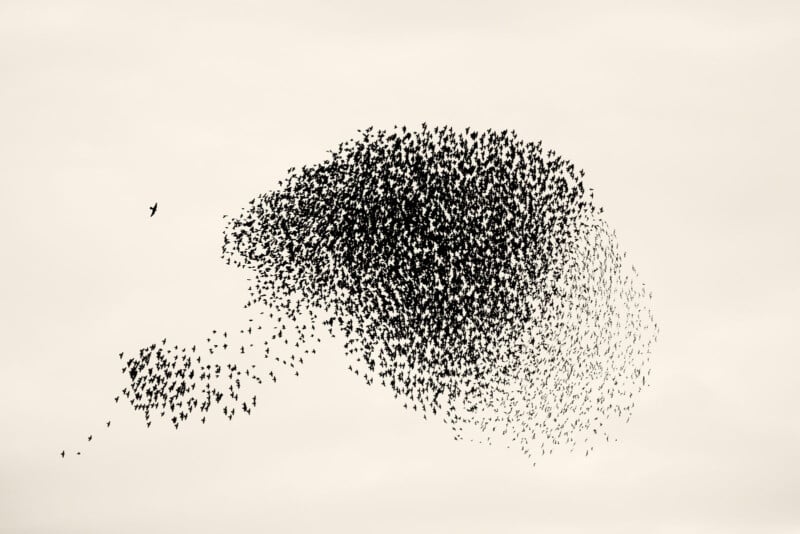
“Such ethereal visions arise from the interplay of bird and sky, a conjuring of the mind and its longing for familiar forms. It highlights the power of human imagination and our capacity to find beauty and significance in the mesmerizing patterns created by these birds,” Solkær explains.
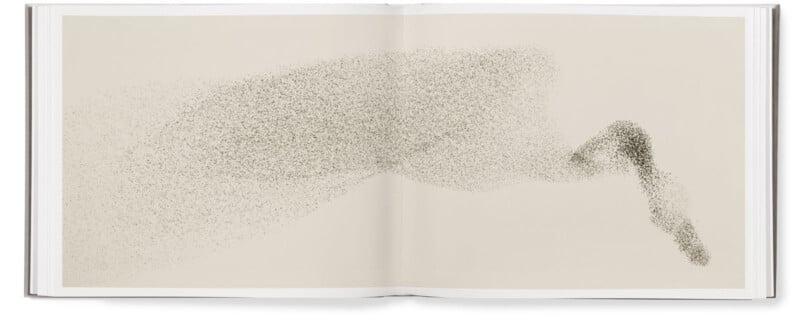
More From Søren Solkær
Søren Solkær’s new monograph, Starling, is available now through Solkær’s online shop. People can also purchase Black Sun and individual prints as posters there.
Solkær says he is working on three new projects right now, two of which involve traveling to Yemen and Bhutan. The third is a portrait project surrounding spiritual people. People can stay up to date with his work on Instagram.
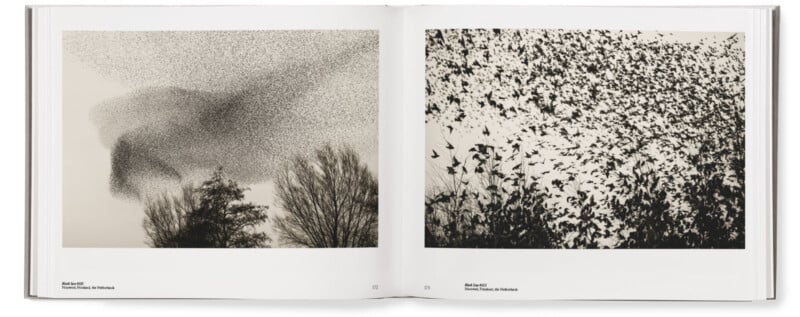
“It is, however, very clear to me that I am not done photographing starlings,” he adds. “When winter approaches, I start searching for them. I doubt there will be a third starling book, but I have new exhibitions in the pipeline.”
Solkær’s work is currently on display at the National Nordic Museum in Seattle through March 10. And later this year, his starlings images will be showcased at a museum in Japan.
Image credits: All images © Søren Solkær
